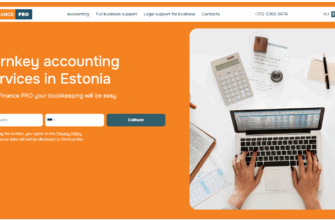Germany has long been a cornerstone of Europe’s economic strength, celebrated for its robust industrial sector and thriving export market. Yet, 2024 has delivered unsettling developments. A recent report from Creditreform and the Leibniz Center for European Economic Research (ZEW) reveals that 196,100 businesses in Germany closed their doors, the highest tally in ten years. This represents a 16% rise compared to 2023 and exceeds numbers seen since 2011, during the aftermath of the global financial crisis. For entrepreneurs or investors eyeing Germany, this is a clear signal to pay attention. What’s behind this surge in closures, and what lessons can we draw? Let’s dive in and explore.
This article, prepared by the journalists at TheMors, dives into the reasons behind the surge in business closures in Germany, the industries hit hardest, and what it means for the future. Whether you’re a business owner, an investor, or just curious about Germany’s economic landscape, here’s what you need to know.
- Why Are So Many Companies Closing in Germany?
- High Energy Costs Are Crushing Businesses
- Labor Shortages Are Adding Pressure
- Economic Slowdown and Global Competition
- Which Industries Are Suffering the Most?
- Energy-Intensive Sectors Take the Biggest Hit
- High-Tech Services Are Also Struggling
- Large Companies Aren’t Immune
- What Does This Mean for Germany’s Economy?
- Loss of Industrial Base
- Economic Stagnation
- A Wake-Up Call for Change
- How Can Businesses Survive in This Climate?
- Focus on Energy Efficiency
- Diversify Your Market
- Use Digital Tools to Cut Costs
- What’s Next for Germany?
- FAQ: Business Closures in Germany
- Why are so many businesses closing in Germany in 2024?
- Which industries saw the most closures?
- How much did business closures increase in 2024?
- Is Germany’s economy in a recession?
- Stay Informed with TheMors
Why Are So Many Companies Closing in Germany?
The rise in business closures in Germany isn’t a random event. It’s the result of several challenges piling up over the years, hitting companies hard in 2024. Let’s look at the main reasons.
High Energy Costs Are Crushing Businesses
Energy prices have been a major issue for German companies, especially since the energy crisis deepened after the halt of Russian gas supplies. In energy-intensive industries like manufacturing and chemicals, the impact has been brutal. According to the ZEW report, 1,050 businesses in these sectors closed in 2024—a 26% jump from the previous year. For many, the cost of keeping the lights on and the machines running was just too high.
I spoke to a small factory owner in Bavaria who shared his struggle. “We used to manage with tight margins, but the energy bills doubled in two years. I couldn’t raise prices enough to cover it—customers would go elsewhere. I had to close after 15 years,” he said. Stories like his are becoming too common across Germany.
Labor Shortages Are Adding Pressure
Germany’s workforce is shrinking, and it’s hitting businesses hard. An aging population means fewer workers, and by 2030, the German Economic Institute predicts a shortfall of over five million workers. Small and medium-sized enterprises (SMEs), which make up a huge chunk of the economy, are struggling to find skilled staff. In 2024, this labor shortage was a key reason for many business closures in Germany, especially for smaller firms that can’t compete with big corporations for talent.
Economic Slowdown and Global Competition
Germany’s economy shrank by 0.2% in 2024, marking its second consecutive year of decline, according to the Federal Statistical Office. Weak global demand has hurt exports, which account for 50.3% of the country’s output. On top of that, competition from foreign suppliers—especially from Asia—has intensified. Industries like automotive and machinery, which are Germany’s bread and butter, are feeling the heat. Add high interest rates and inflation into the mix, and it’s no surprise that many companies couldn’t keep going.
Which Industries Are Suffering the Most?
The wave of business closures in Germany hasn’t spared any sector, but some have been hit harder than others. Here’s a closer look.
Energy-Intensive Sectors Take the Biggest Hit
As mentioned earlier, energy-intensive industries like manufacturing, chemicals, and pharmaceuticals saw a sharp rise in closures. The ZEW report highlights 360 closures in the chemical and pharmaceutical sectors alone—the worst figure in 20 years. These industries rely heavily on affordable energy, and with costs soaring, many couldn’t survive.
High-Tech Services Are Also Struggling
It’s not just traditional industries. The high-tech services sector saw 14,000 business closures in 2024, a 24% increase from 2023. This sector includes IT services and consulting firms, which have been affected by reduced corporate spending during the economic slowdown. For foreigners looking to invest in Germany’s tech scene, this might be a red flag.
Large Companies Aren’t Immune
Historically, business closures in Germany have mostly affected small, owner-managed firms. But 2024 was different. Over 4,050 larger companies—those with significant economic activity—closed their doors, nearly double the average annual figure. This trend is worrying because these companies often employ more people and contribute more to the economy. When big players start shutting down, it sends ripples through the entire market.
What Does This Mean for Germany’s Economy?
The record-high business closures in Germany are more than just a statistic—they’re a sign of deeper issues. Let’s explore the bigger picture.
Loss of Industrial Base
Germany has long been known for its industrial strength, with sectors like automotive and manufacturing leading the way. But with so many companies closing or moving production abroad, the country risks losing its industrial edge. “This is a clear warning to policymakers,” said Patrik-Ludwig Hantzsch from Creditreform. “Many companies are relocating their production abroad, closing locations, or ceasing investment in Germany altogether.” If this continues, Germany could see a permanent decline in its industrial expertise.
Economic Stagnation
The German economy is already in a rough spot. After shrinking by 0.3% in 2023, the 0.2% contraction in 2024 shows that recovery isn’t coming anytime soon. Exports dropped by 0.8% in 2024, and industrial production fell by 3.4% in March alone. With business closures in Germany on the rise, the economy is losing jobs, innovation, and tax revenue—all of which make recovery harder.
A Wake-Up Call for Change
On the flip side, this crisis could be a chance for Germany to rethink its approach. Some experts argue that structural reforms—like reducing bureaucracy, investing in green energy, and improving infrastructure—could help. For example, easing immigration rules for skilled workers might address the labor shortage. But without action, the outlook for 2025 isn’t great. Some economists even predict a third year of recession if nothing changes.
How Can Businesses Survive in This Climate?
If you’re running a company in Germany—or planning to start one—these challenges might seem daunting. But there are ways to navigate this storm. Here are a few practical tips.
Focus on Energy Efficiency
High energy costs aren’t going away soon, so look for ways to cut usage. Invest in energy-efficient equipment, or explore renewable energy options like solar panels. It’s a big upfront cost, but it can save you in the long run. A friend of mine who owns a small bakery in Berlin switched to LED lighting and energy-efficient ovens. Her energy bill dropped by 20%, and she’s still in business.
Diversify Your Market
Relying on one market or customer base is risky, especially with global demand so weak. Look for new opportunities—maybe export to growing markets in Asia or Africa. Or pivot to a related product or service that’s in demand. Flexibility can be a lifesaver.
Use Digital Tools to Cut Costs
Technology can help you do more with less. Use online tools to automate tasks, manage inventory, or reach customers. Many small businesses in Germany are turning to e-commerce to survive. If you’re not online yet, now’s the time.
What’s Next for Germany?
The record number of business closures in Germany in 2024 is a stark reminder that even Europe’s strongest economies aren’t immune to trouble. High energy costs, labor shortages, and global competition have created a perfect storm for companies. Energy-intensive industries and high-tech services are feeling the brunt, while even larger firms are struggling to stay afloat.
But there’s hope. Germany has a history of resilience, and with the right policies, it can bounce back. For now, businesses need to adapt—whether that’s cutting costs, finding new markets, or embracing technology. For investors and foreigners, this might be a tricky time to enter the German market, but it could also be a chance to buy in at a lower cost if you’re willing to take the risk.
FAQ: Business Closures in Germany
Why are so many businesses closing in Germany in 2024?
High energy costs, labor shortages, and a slowing economy are the main reasons. Energy-intensive sectors like manufacturing and chemicals are hit hardest, while global competition adds more pressure.
Which industries saw the most closures?
Energy-intensive industries like chemicals and manufacturing saw a 26% rise in closures. High-tech services had 14,000 closures, and larger companies also faced a sharp increase, with 4,050 shutting down.
How much did business closures increase in 2024?
Closures rose by 16% from 2023, with 196,100 companies shutting down—the highest number since 2011.
Is Germany’s economy in a recession?
Yes, Germany’s economy shrank by 0.2% in 2024, marking its second consecutive year of decline. Some predict a third year of recession in 2025 if trends continue.
Stay Informed with TheMors
The wave of business closures in Germany is a developing story, and there’s more to uncover. Want to stay updated on economic trends, business insights, and breaking news from around the world? Visit TheMors – Breaking News for the latest updates and in-depth analysis. Don’t miss out—check out our other articles and see what’s shaping the global landscape today!









